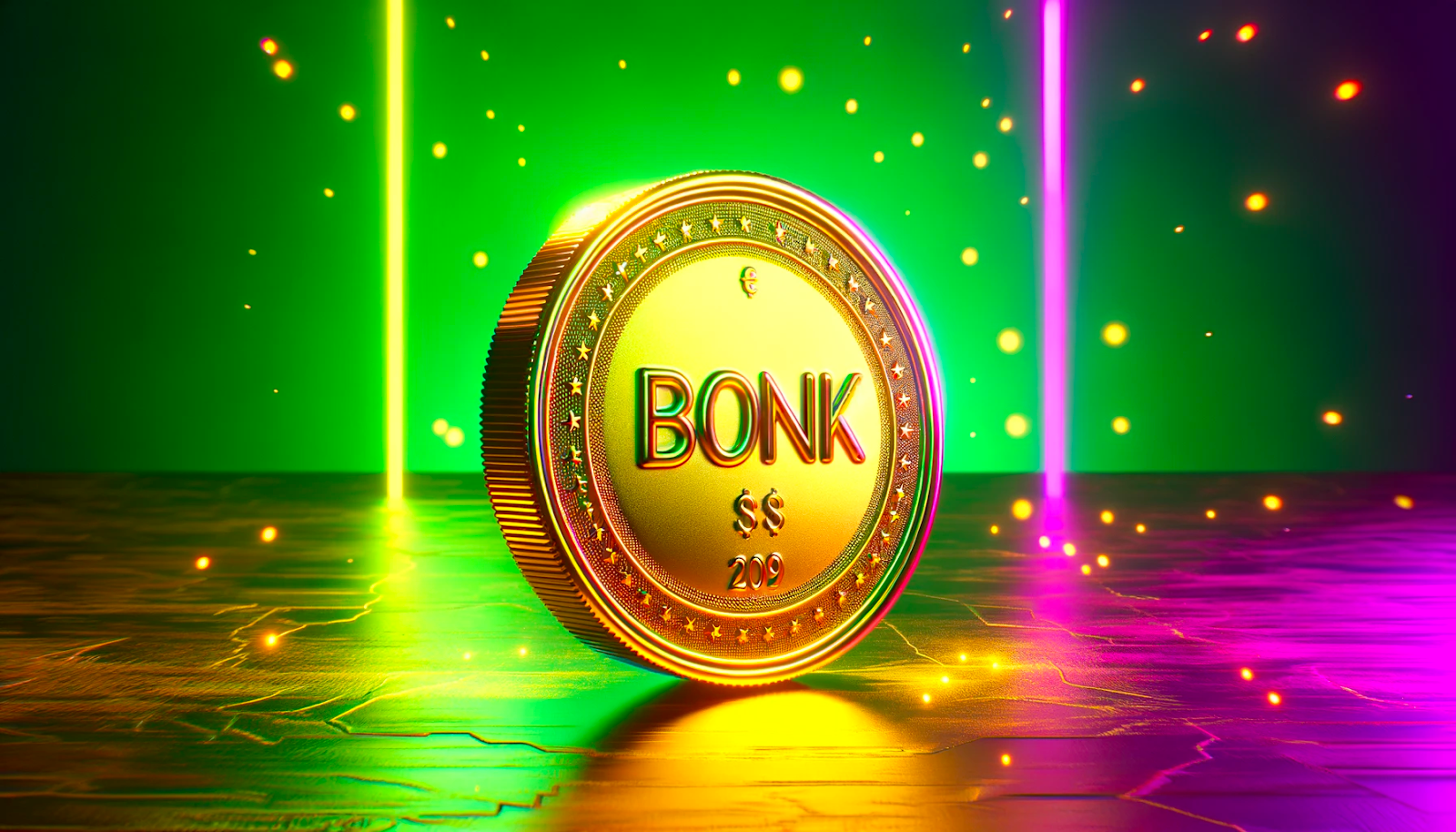
Intuitively, the distinction between Bitcoin vs Bitcoin Cash (BTC vs BCH) can sometimes leave crypto traders in a bit of a pickle…
In reality however, the difference between the two projects is rather transparent.
So without further ado, let’s explore the differences between Bitcoin vs Bitcoin Cash.
Bitcoin Vs Bitcoin Cash: A Brief Overview
As our many (more in-depth) articles explain, Bitcoin was the inaugural cryptocurrency to gain widespread recognition as a decentralised payment system that’s independent of governmental or third-party influence.
On the other hand, Bitcoin Cash emerged as a cryptocurrency resulting from a fork in the Bitcoin blockchain - where for context, a blockchain fork is where users with diverging preferences initiate a reconfiguration that leaves two or more coexisting versions of the same blockchain (with each having different operational parameters that cater to each preference).
Further, the fork leading to Bitcoin Cash took place in 2017 amid disagreements between developers and users regarding the future trajectory of Bitcoin.
What is Bitcoin
In July 2017, a decisive majority of Bitcoin's computing power was represented by mining pools and companies. Around this period, such entities voted in favour of integrating Segregated Witness (SegWit) technology onto the network - an update that aimed to reduce the amount of data required for verification in each block.
To achieve this, SegWit tech would begin extracting signature data from transaction blocks and relocating them to an extended block. Given that signature data constituted a substantial portion of the data processed in each block, this represented a significant technological advancement on the Bitcoin blockchain.
By September 2017, research published by the cryptocurrency exchange BitMEX revealed that the implementation of SegWit had played a role in enlarging the Bitcoin block size.
What is Bitcoin Cash
With such fundamental development arriving on the Bitcoin scene, Bitcoin Cash then arrived.
As you may have predicted, the project comes courtesy of Bitcoin miners and developers who shared equal concerns about the future and scalability of Bitcoin now that SegWit had been implemented - a feature that they believed not only fell short of addressing the core issues of scalability, but also deviated from the original roadmap of Satoshi Nakamoto.
In August 2017, a group of miners and developers then initiated a hard fork, which effectively birthed a new blockchain and currency: Bitcoin Cash (BCH).
As of today, BCH operates on its own distinct blockchain with specific specifications - with one of its crucial distinctions from Bitcoin being its increased block size of 8 MB, which is designed to expedite the verification process. Moreover, such block size can be adjusted to ensure transaction verifications proceed swiftly, regardless of the number of supporting miners. As of 2018, this limit was further raised to 32 MB.
In theory, what this means is that Bitcoin Cash has the potential to process transactions at a faster rate compared to Bitcoin. This implies shorter wait times and the possibility of lower transaction processing fees.
Additionally, it’s believed that Bitcoin Cash has the capacity to handle significantly more transactions per second compared to the Bitcoin network. That being said, it's also important to note that this assertion hasn’t been rigorously tested yet, as the blockchain currently only experiences an average of over 115,000 daily transactions.
Bitcoin Vs Bitcoin Cash - Other Considerations
Although the Bitcoin Cash fork was momentous enough by itself, discussions surrounding its scalability, transaction processing, and block size impacts have persisted beyond the initial event.
For instance, November 2018 saw the Bitcoin Cash network undergo its own hard fork which led to the creation of another Bitcoin variant; Bitcoin SV. The aim behind such project was to further adhere to Satoshi Nakamoto's original Bitcoin vision - which it intended to do so through implementing modifications that enhanced its scalability and transaction speeds.
Despite these multilayered hard forks, Bitcoin (always to be known as the original Bitcoin network) remains as the undeniable leader when it comes to mass worldwide adoption - as most proficiently demonstrated by its apex market cap valuation. As a result, Bitcoin Cash users may notice that such network tends to have lower liquidity and practical applicability in real-world transactions compared to its OG Bitcoin predecessor.
Further, despite Bitcoin Cash’s efforts to improve transaction times and usability through an enlarged block size, it still falls significantly short of Bitcoin in terms of popularity and transaction volume. As of November 1, 2023, BCH block sizes ranged from a few hundred bytes to around 7 MB, whereas BTC blocks consistently ranged from 1.1 MB to about 1.8 MB.
Bitcoin vs Bitcoin Cash: Market Caps & Total Supplies
As previously stated, Bitcoin outperforms Bitcoin Cash in terms of market capitalisation (as well as every other cryptocurrency in existence).
As of November 7th 2023, BTC has a market cap of $676 billion (ranking it number one in the world), whereas BCH sits in 19th place with a valuation of $4.795 billion.
And when it comes to the total supplies of each project, both will never exceed 21 million coins. Further, both are increasing their circulating supplies gradually along a defined schedule, with the issuance rate cut in half about every four years.
As of November 7th, BTC has a circulating supply of 19,535,668 (93.03% of its total supply), whilst BCH has a circulating supply of 19,552,550 (93.11% of its total supply).
Bitcoin Vs Bitcoin Cash: Final Thoughts
Bitcoin and Bitcoin Cash both emerged from the original Bitcoin platform.
In 2017, Bitcoin Cash split-off from Bitcoin due to community disagreements over how to address scalability and speed concerns.
While Bitcoin maintains its position as the leading cryptocurrency in terms of price and market capitalization, Bitcoin Cash also boasts a substantial user base, as well as proficient features for sending crypto rapidly and for a fraction of a cent.
Bitcoin Vs Bitcoin Cash: FAQ
What is Bitcoin and Bitcoin Cash?
Bitcoin (BTC) is the first and most well-known cryptocurrency, created by an anonymous entity known as Satoshi Nakamoto in 2008. It operates on a decentralised ledger technology called blockchain.
On the other hand, Bitcoin Cash (BCH) is a derivative of Bitcoin, created through a hard fork in 2017. The project was designed to address scalability concerns associated with Bitcoin's original blockchain.
What differentiates Bitcoin and Bitcoin Cash?
Bitcoin prioritises security and decentralisation, often characterised by slower transaction times and higher fees. Its block size is also limited to 1 MB.
Bitcoin Cash focuses on faster transaction speeds and lower fees by increasing the block size to 8 MB (with potential adjustments). This aims to enhance usability for everyday transactions.
Bitcoin Vs Bitcoin Cash - which cryptocurrency is more widely adopted?
Bitcoin holds the title of being the most widely adopted cryptocurrency globally, as indicated by its stature as the cryptocurrency with the highest market capitalisation. Bitcoin Cash, while still significant, has a much smaller user base in comparison.
How do transaction fees compare between Bitcoin and Bitcoin Cash?
Due to its larger block size, Bitcoin Cash generally offers lower transaction fees compared to Bitcoin. This makes it potentially more attractive for everyday use in situations where fees are a concern.
Can I use Bitcoin and Bitcoin Cash interchangeably?
While both cryptocurrencies share similar technological foundations, they are separate entities with distinct blockchains. As such, Bitcoin and Bitcoin Cash are not directly interchangeable. They must be transacted and stored separately.
Bitcoin Vs Bitcoin Cash - which cryptocurrency is better for day-to-day transactions?
Bitcoin Cash is often considered more suitable for day-to-day transactions due to its faster confirmation times and lower fees. It's designed with usability in mind, making it potentially more practical for everyday spending.
Bitcoin Vs Bitcoin Cash - which cryptocurrency should I invest in?
The decision between Bitcoin and Bitcoin Cash as an investment depends on individual preferences, risk tolerance, and long-term goals.
Bitcoin is generally viewed as a store of value and a prominent asset in the cryptocurrency market, whereas Bitcoin Cash may be preferred by those seeking to use cryptocurrency for everyday transactions.
However, please remember that it's essential to conduct thorough research before making decisions regarding Bitcoin Vs Bitcoin Cash investments.
Want More Cutting-Edge Crypto News?
Follow Us: X TikTok Instagram Telegram LinkedIn
Sign up to our newsletter at the bottom of the page
Check Out Our Top 10 Crypto Currencies of 2023
This article is intended for educational purposes and is not financial advice.


















